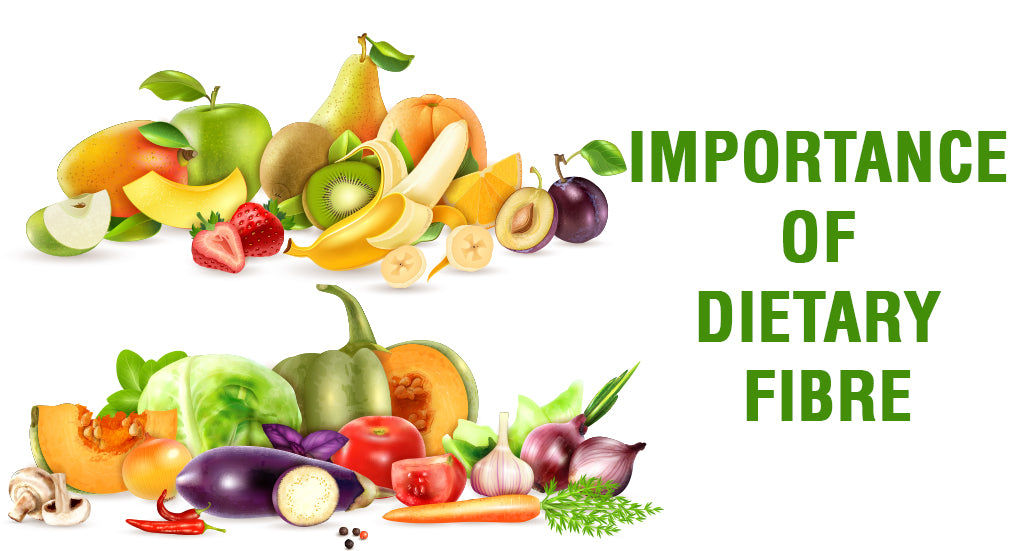
In the realm of nutrition, few components hold as much significance as dietary fiber. Often referred to as nature’s broom, fiber plays a crucial role in maintaining digestive health, promoting weight management, reducing the risk of chronic diseases, and contributing to an overall sense of well-being. This comprehensive article delves into the multifaceted importance of fiber, exploring its various types, functions, dietary sources, and the remarkable impact it has on human health.
Understanding Fiber: Types and Sources
Dietary fiber is a type of complex carbohydrate found in plant-based foods that the human body cannot fully digest or absorb. It is divided into two primary types, each with distinct benefits:
1. Soluble Fiber
Soluble fiber dissolves in water to form a gel-like substance. This type of fiber is particularly effective in slowing down digestion and absorption, which can help stabilize blood sugar levels and regulate cholesterol. Foods rich in soluble fiber include oats, legumes, fruits (such as apples and citrus fruits), and vegetables like carrots and broccoli.
2. Insoluble Fiber
Insoluble fiber, as the name suggests, does not dissolve in water. Instead, it adds bulk to stool, facilitating regular bowel movements and preventing constipation. Whole grains, nuts, seeds, and many vegetables (like cauliflower and dark leafy greens) are excellent sources of insoluble fiber.
The Importance of Fiber for Health
1. Digestive Health
Fiber’s most well-known role is in maintaining digestive health. Insoluble fiber promotes regular bowel movements by adding bulk to stool and preventing constipation. Soluble fiber, on the other hand, nourishes beneficial gut bacteria and supports a healthy gut microbiome, which is crucial for overall digestive and immune system health.
2. Blood Sugar Management
Soluble fiber slows down the digestion and absorption of carbohydrates, leading to a slower and more controlled release of glucose into the bloodstream. This can help prevent rapid spikes and crashes in blood sugar levels, making fiber-rich foods beneficial for individuals with diabetes or those at risk of developing it.
3. Heart Health
Both soluble and insoluble fiber contribute to heart health. Soluble fiber binds to cholesterol particles, reducing their absorption and helping to lower levels of “bad” LDL cholesterol in the blood. This, in turn, reduces the risk of cardiovascular diseases like heart attacks and strokes.
4. Weight Management
Fiber-rich foods are often lower in calorie density and take longer to chew, promoting a feeling of fullness and satiety. This can naturally lead to reduced calorie intake and aid in weight management efforts.
5. Colon Health and Disease Prevention
Insoluble fiber, by increasing stool bulk and promoting regular bowel movements, helps prevent conditions like diverticulitis and hemorrhoids. Additionally, a high-fiber diet is associated with a reduced risk of colorectal cancer, possibly due to its positive effects on gut health and the elimination of potential carcinogens.
6. Long-Term Disease Prevention
The benefits of fiber extend beyond the digestive system. Research suggests that a high-fiber diet is linked to a decreased risk of chronic diseases such as type 2 diabetes, certain types of cancer (including colorectal and breast cancer), and obesity.
Incorporating Fiber into Your Diet
To harness the incredible benefits of fiber, it’s essential to include a variety of fiber-rich foods in your daily diet:
- Whole Grains: Opt for whole grains like oats, quinoa, brown rice, and whole wheat over refined grains.
- Fruits and Vegetables: Consume a colorful array of fruits and vegetables to ensure a diverse intake of fiber types.
- Legumes: Incorporate beans, lentils, and chickpeas into your meals to boost fiber and protein content.
- Nuts and Seeds: Snack on nuts and seeds for a satisfying crunch and added fiber.
- Fiber Supplements: In cases where dietary fiber intake is insufficient, fiber supplements can provide an extra boost. However, whole food sources are generally preferable due to their additional nutrients and phytochemicals.
Conclusion
Dietary fiber is a cornerstone of health, offering an array of benefits that span from digestive wellness to chronic disease prevention. By choosing a diet rich in both soluble and insoluble fiber, individuals can embark on a journey of enhanced well-being, improved digestion, and reduced risk of various health conditions. Whether you’re looking to support heart health, manage blood sugar levels, or simply maintain regularity, fiber-rich foods are the key to unlocking a healthier, more vibrant life.



